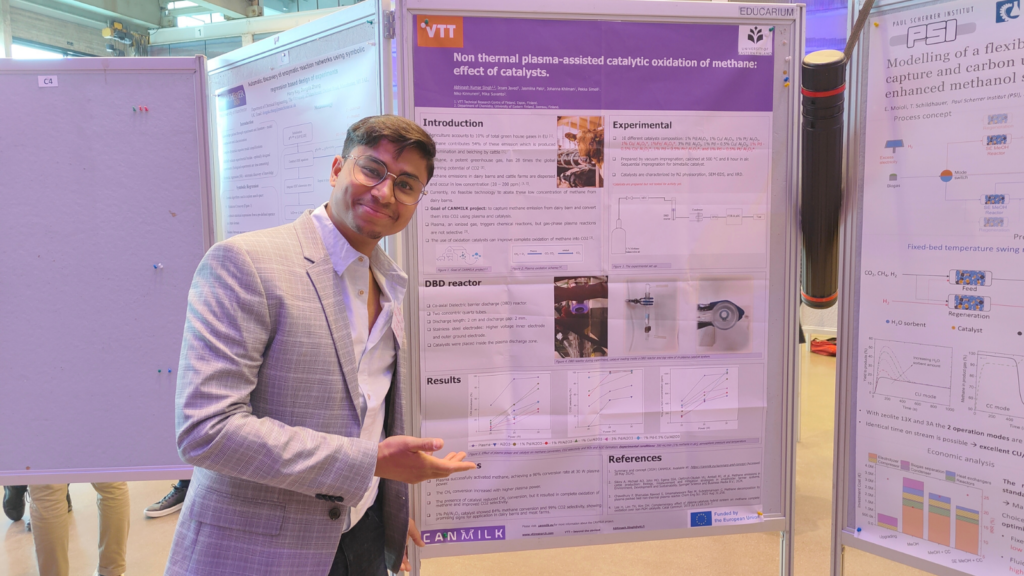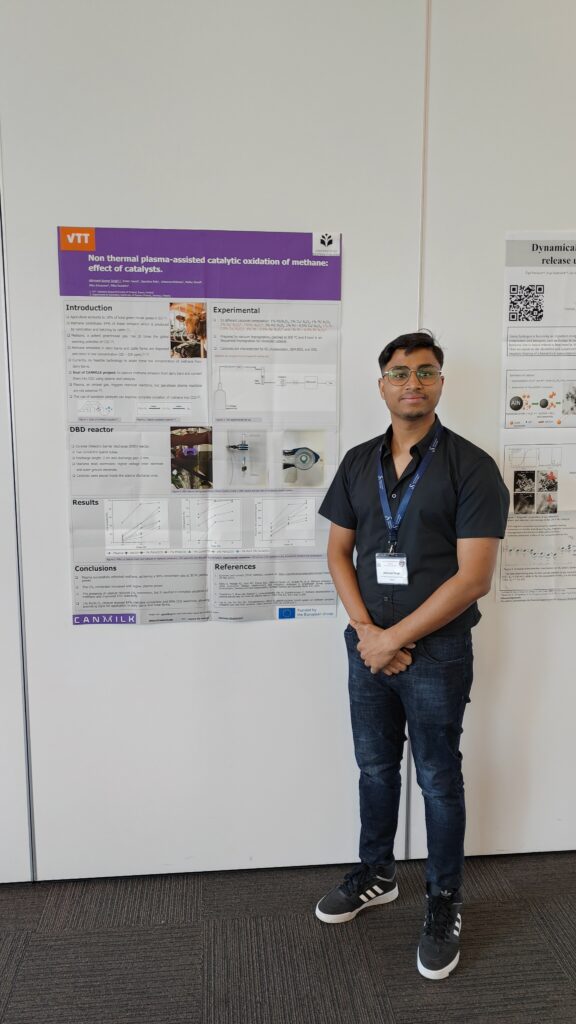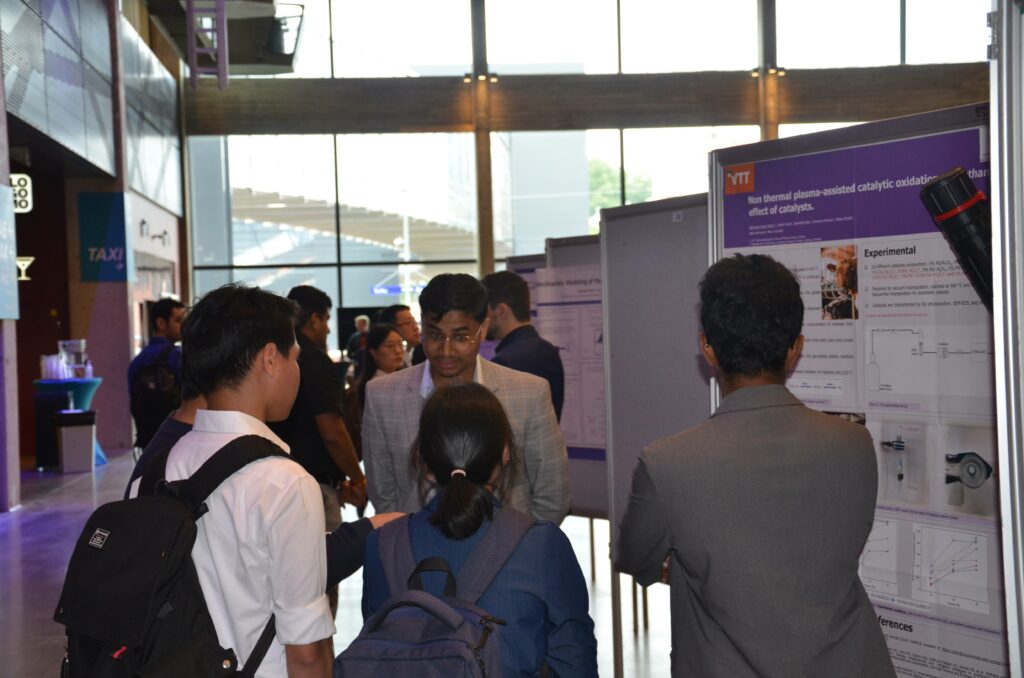
PhD student Abhinash Kumar Singh represented the CANMILK project at the 20th Nordic Symposium on Catalysis (NSC) in Stavanger, Norway, and the ISCRE 28 International Symposium on Chemical Reaction Engineering 2024 in Turku, Finland. Singh’s poster presentation highlighted the latest advances in non-thermal plasma-assisted catalytic oxidation of methane, with a focus on the effects of different catalysts. This research is important for achieving the methane abatement goals of the CANMILK project. Methane emissions from dairy and meat farms are a major environmental challenge and Singh’s work aims to improve the efficiency and selectivity of methane oxidation processes.
Singh’s research focuses on the use of non-thermal plasma to activate methane, a potent greenhouse gas, and its subsequent oxidation with noble metal catalysts. The research showed that non-thermal plasma could successfully activate methane, achieving a 90% conversion rate at 30W plasma power. This finding indicates that non-thermal plasma is an efficient method for methane activation, providing a low energy solution for methane mitigation. In addition, the study showed that methane conversion rates increased with higher plasma power.
The presence of a catalyst was found to reduce the overall conversion rate of methane. However, the catalyst allowed the complete oxidation of methane and improved the selectivity towards carbon dioxide (CO2). Among the catalysts tested, the 1% Pd/Al2O3 catalyst stood out with an 84% conversion of methane and 99% selectivity for CO2. The performance of this catalyst is promising for use in dairy and meat farms.

